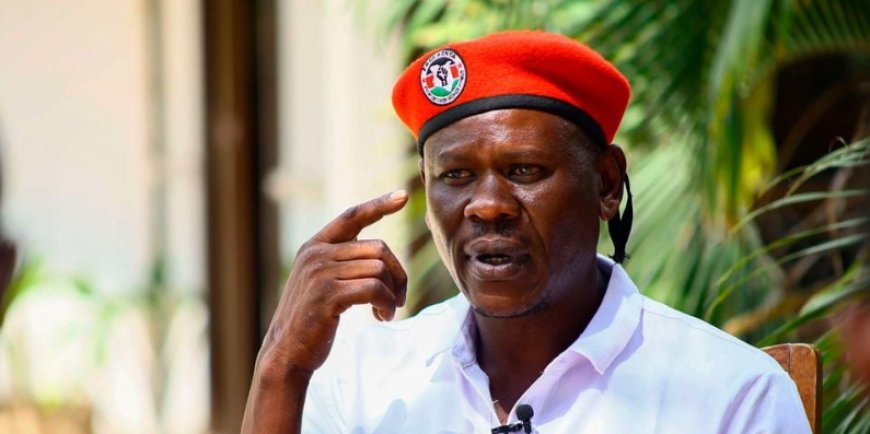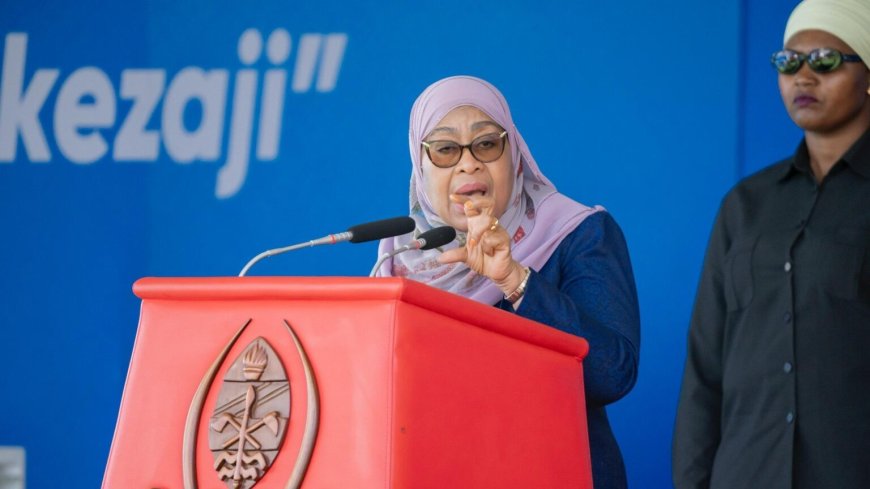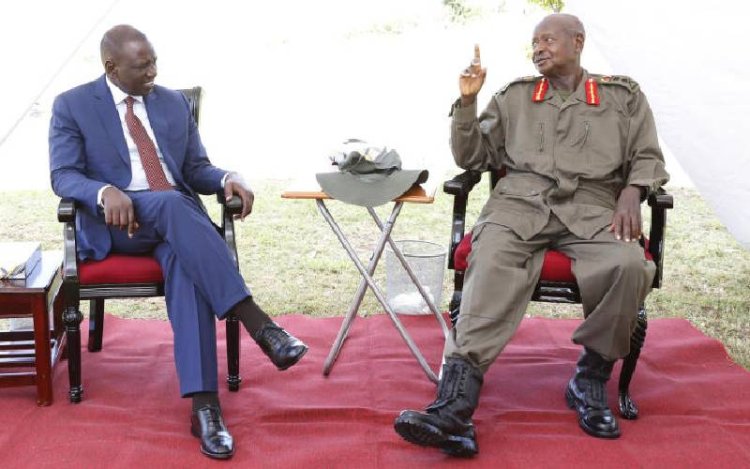Bob Njagi Calls For Kenya To Close Its Borders In Protest Of Tanzania Crackdown
Njagi announced plans for a regional shutdown on December 9, in solidarity with citizens facing repression — starting with Tanzania.

Kenyan activist Bob Njagi has issued a powerful call for East African solidarity against what he described as “oppressive regimes” in the region, vowing to rally citizens across borders to hold their governments accountable.
Speaking to journalists on Wednesday, November 12, after being released from a 38-day detention in Uganda, Njagi announced plans for a regional shutdown on December 9, in solidarity with citizens facing repression — starting with Tanzania.
“We have to come in now as human rights defenders and also say that we should not associate ourselves with such oppressive regimes, starting with Tanzania,” he said.
“We are hoping that on December 9, they have declared it an independence day. Also in Kenya, we are declaring December 9 that there will be a total shutdown. We are going to stand in solidarity with our brothers in Tanzania, and we are going to shut our borders in Kenya in solidarity with Tanzania.”

President Samia Suluhu Hassan during a past address. /IKULU TANZANIA
Njagi further demanded the immediate closure of the Tanzanian embassy in Nairobi, urging legislators to follow South Africa’s example of taking diplomatic action in the face of human rights violations.
“The Tanzanian embassy, we are actually calling for it to be closed down immediately until further notice, and we are asking our legislators in Parliament to push this motion, just like the South Africans did when there was an issue between Palestine and Israel.
"They closed the embassy in Israel because they were collaborating with our Palestinians to massacre people in Palestine. The same thing is happening in Tanzania. What are we doing as Kenyans for our brothers?” he posed.
Njagi further accused the governments of Uganda, Kenya, and Tanzania of collaborating to suppress dissent, saying his own arrest had been a coordinated effort.
“We realise that the three governments are collaborating — Museveni, President Ruto, and Samia Suluhu. Our arrest was a coordinated arrest between the Kenyan government; they knew we were crossing over into Tanzania, they raised the alarm, and those guys did the dirty job for them.
"So we as a people have decided that we are going to unite across borders within the East African Community to ensure that we put a check on the excesses of these governments," he continued.
Tensions in Tanzania
Tanzania is on edge following the controversial re-election of President Samia Suluhu Hassan, who was declared the winner with 97.66% of the vote. The opposition has rejected the results, calling the process a blatant fraud marked by intimidation and vote rigging.
Widespread protests erupted after several opposition candidates were disqualified, with reports of security forces using live ammunition and tear gas to disperse demonstrators. Witnesses and human rights groups claim that hundreds may have been killed, while the government has remained largely silent on the allegations.
The United Nations has demanded an independent investigation into what it described as “credible reports” of bodies being removed from mortuaries to conceal the true death toll. The government has since imposed curfews, carried out mass arrests, and enforced an internet shutdown across major cities, further fueling outrage.
The escalating crisis has drawn international condemnation and raised concerns about regional instability, as Tanzania’s crackdown threatens to strain relations with its East African neighbors.
The “Fridge” Ordeal
Njagi, who was detained alongside Nicholas Oyoo, went on to describe the harrowing conditions of their captivity — including the “fridge” President Yoweri Museveni later confirmed existed. He revealed that the “fridge” was located at a Special Forces Command (SFC) Centre, one of several sites where hundreds of Ugandans are allegedly being held without charge or trial.
Calling the detentions a crime against humanity, Njagi said they were being carried out under the watch of General Muhoozi Kainerugaba, Museveni’s son and the Chief of Defence Forces of the Uganda People’s Defence Forces (UPDF).
However, he suggested Museveni himself may not have been aware of everything happening at the facility, noting that “the team running it did not take orders from anyone else other than Muhoozi.”
“They are being undertaken at the Special Forces Command Centre in Sarakasenyi, the training ground for the Presidential Security team, and they call themselves Next To None because they don’t take commands from the Judiciary, Parliament, or the Executive,” Njagi said.
“This is an armed militia operating under General Muhoozi. There are so many Ugandans there. I left over 150 of them in custody — people being held without any court process. Some have been detained for up to a year. That is what they call the fridge.”
Museveni’s Admission
Hours after Njagi and Oyoo were freed, President Museveni confirmed in a UBC interview that the two had indeed been detained — and even “kept in a fridge” for several days.
“Of course, with our very good intelligence, we picked them up and they have been in the fridge for some days. Now, some Kenyan leaders rang me and said I should either put them in jail here or hand them back,” Museveni said.
He also accused the two Kenyans of collaborating with Robert Kyagulanyi (Bobi Wine), the Ugandan opposition leader. “We arrested two Kenyans, but I do not remember their names. They were working with Kyagulanyi’s group, and they are experts in riots,” he claimed.
Njagi and Oyoo were released on the night of Friday, November 7, and handed over to Kenyan authorities at the Busia border, 38 days after their October 1 abduction.
Their release came after weeks of denial from both Ugandan police and the military, despite witnesses stating the pair had been taken by armed officers from a petrol station near Kampala.

President William Ruto and his Ugandan counterpart, Yoweri Museveni. /STANDARD DIGITAL






